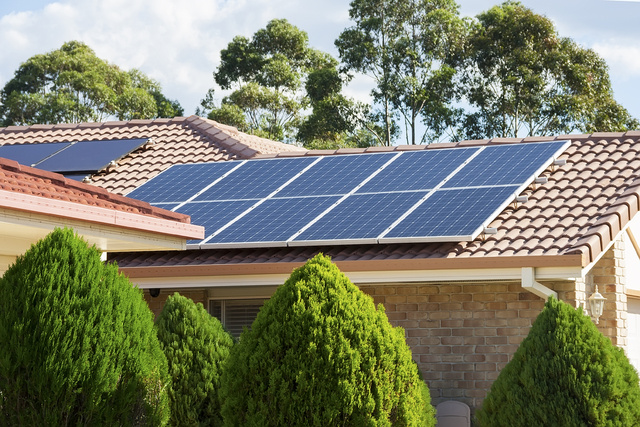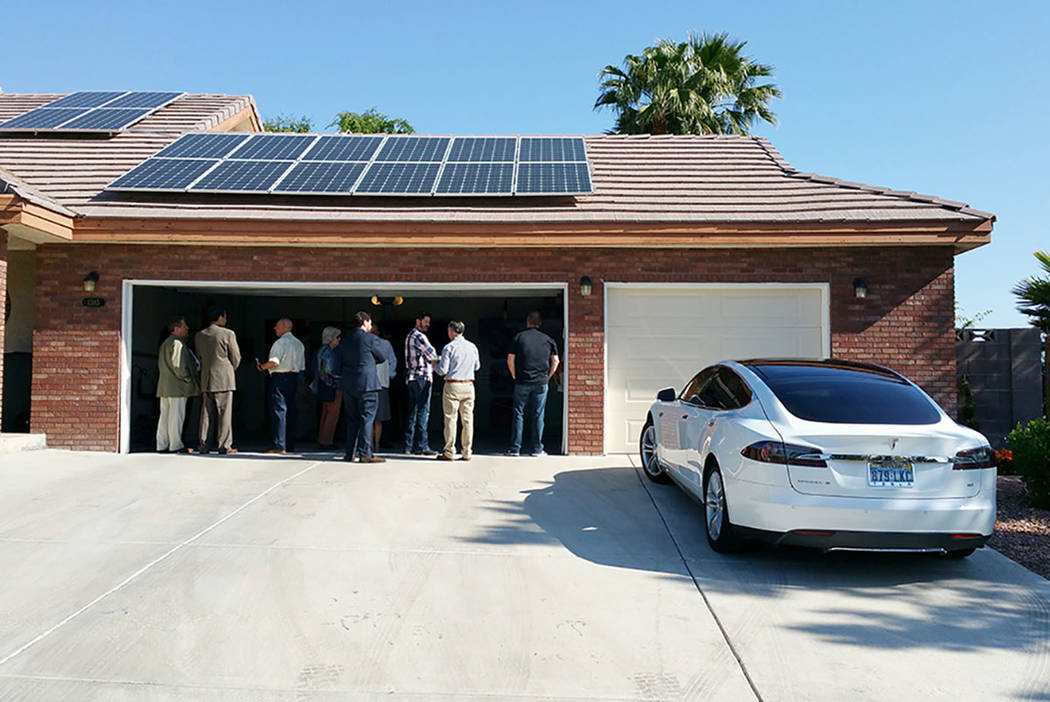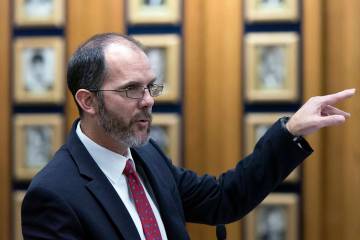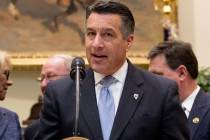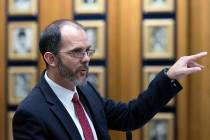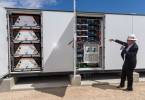The sun could soon shine again on rooftop solar in Nevada
CARSON CITY — The sun could soon shine again on rooftop solar in Nevada.
A measure that supporters say would make net metering viable in the Silver State recently received a bipartisan vote of support in an Assembly committee.
Rooftop solar companies driven out of the state when state utility regulators adopted less generous payments for the excess electricity hope Assembly Bill 405 will bring thousands of jobs back to Nevada.
The bill would provide protections for consumers who want to purchase rooftop solar systems and participate in net metering, in which homeowners get reimbursed from a utility for the excess electricity they generate.
The measure from Assemblyman Chris Brooks, D-Las Vegas, now includes net metering provisions first proposed in Assembly Bill 270 by Assemblyman Justin Watkins, D-Las Vegas.
“Nevada has a chance to reclaim the title as our country’s leader on solar energy while creating a much more streamlined process that also protects customers,” Brooks said.
Watkins said regulations adopted after the 2015 session made rooftop solar less competitive in Nevada.
“Combining AB405 and AB270 will help put Nevada’s clean energy economy back on track by incentivizing rooftop solar panel installation and allow customers to sell back excess energy to the grid, while ensuring customers know exactly what they are signing up to do,” he said.
The bill, as amended by the Assembly Commerce and Labor Committee, would reimburse rooftop solar owners at 95 percent of the retail rate of the generated electricity, which is 11.3 cents per kilowatt hour in NV Energy’s Southern Nevada region.
It passed on a 12-2 vote, with Maggie Carlton, D-Las Vegas, and Skip Daly, D-Sparks, opposed.
New rates proposed
The measure would not change the rates for current rooftop solar customers who were grandfathered in under the original net metering rates by the Nevada Public Utilities Commission.
The 95 percent reimbursement rate would be available for the first 250 megawatts of rooftop solar generation. The reimbursement rate would be reduced to 90 percent for the next 160 megawatts, dropping to an 80 percent rate when rooftop solar energy totals 10 percent of the total power grid production.
The reimbursement rates would be maintained for 20 years under the rate when the homeowner installed a system. This is meant to provide certainty to homeowners who will spend $20,000 or more to install a rooftop system.
NV Energy, which operates as Nevada Power in Southern Nevada, has taken a neutral position on the bill, which will go to the full Assembly.
The reimbursement rate and other elements of the bill could still change as the measure makes it way through the legislative process.
Key questions
Assembly Minority Leader Paul Anderson, R-Las Vegas, said the amended bill shows progress, but he believes two areas still need work.
One is the rates paid to rooftop solar owners, which he called “a little aggressive.”
“There is a cost to that,” Anderson said. “It is coming back into the grid, and those costs are spread across other ratepayers.”
The other issue is what happens if Question 3, which would open Nevada’s energy markets to competition, becomes a reality. The measure passed with overwhelming voter support in 2016 and will likely pass a second time in 2018. If voters approve the measure again, customers will pick their providers, making it unclear who would offer credits to solar customers.
“Who is liable for the net metering if we end up in an open-market scenario?” Anderson asked.
The bill as amended also guarantees that rooftop solar customers cannot be charged more in fixed monthly charges than other customers.
Debate and compromise
When it adopted net metering rates in 2016 that drove the industry out of Nevada, the Public Utilities Commission raised the monthly fixed charge for rooftop solar customers and lowered the credit for excess electricity generated.
“This legislation is the product of a lot of debate and compromise, but we are optimistic that it will restore the rooftop-solar industry in Nevada, put solar installers back to work and, most importantly, allow access to affordable, clean solar energy for Nevada’s homeowners and small businesses,” said Louise Helton, owner of 1 Sun Solar, a Las Vegas-based installation company.
Lauren Randall, a spokeswoman for rooftop solar company Sunrun, praised the panel for the vote.
There has been no significant opposition to net metering, although some people have criticized the program because of findings that nonsolar customers subsidize those who install the systems.
Contact Sean Whaley at swhaley@reviewjournal.com or 775-461-3820. Follow @seanw801 on Twitter.
WHY SOLAR LEFT NEVADA
Major solar installation companies, including Sunrun and Solar City, left Nevada after the Public Utilities Commission adopted the new rate structure in 2016.
The rate structure was approved after the PUC determined nonsolar customers were giving net metering customers a subsidy of $16 million a year. It was initially applied to all net metering customers, regardless of when they installed their systems. Existing customers and those with pending applications were later grandfathered in under the old rates.
Nevada lost more than 2,500 rooftop solar installation jobs in 2016 after new net metering rates slowed the industry to a crawl, according to a 2017 report from the Solar Foundation.
But a silver lining in the report shows the state lost only about 400 solar jobs overall. Nevada gained jobs in other areas, primarily in larger solar project development, to offset the rooftop solar losses.
The 400 lost jobs is a 4 percent decrease, from 8,764 jobs in 2015 to 8,371 jobs in 2016.
RELATED
NV Energy wants reversal on net metering rates for future solar customers
Nevada lawmakers want solar industry back on track
NV Energy: Keep existing rooftop-solar customers on favorable rules




